This is not the post I was planning to write today. But then, wildfires are seldom planned. Yesterday, shortly after noon, Marido and Filha called me on their way home from Setúbal and said, “The trees below Palmela Castle are on fire!”
It seems they came upon the fire just minutes after it ignited, because the bombeiros (firefighters) had not yet arrived. Later when I checked Fogos.pt, it listed the fire as having started at 12:04 pm.
I rushed out to our terrace and couldn’t see or smell any smoke, but by the time Marido & Filha had driven around the mountain to the Palmela side (about 10 mins), an ominous column of smoke had risen high into the sky above the castle as the slopes behind it burned.
So instead of giving you a pictorial tour of Oliveira do Paraiso as I planned to do this week, I’m writing to you about smoke and ashes.
After the hottest May in 92 years, nearly all of Portugal is facing severe drought. The country has been plagued by wildfires from top to bottom.
Having lived through several vicious wildfire seasons in California, we know all about the orange skies and rain of ashes and toxic air that accompany such disasters. We were camping near Yosemite in the fall of 2020 when the massive Creek Fire was ignited by lightning and churned through the forest. On the second morning of our camping trip, we woke to ominous orange and soon, flakes of ash and burnt leaves began to coat our tents. We stuffed everything back into bags as fast as we could and headed back down the mountain to safety.
Wildfire season is now a regular occurrence in the western United States, thanks to climate change. So are violent winds in Illinois and cyclones in Zimbabwe and floods in Germany and landslides in Nepal and devastating drought in El Salvador.
While the leaders of the nations who belch the most greenhouse gases dither about numbers and corporate villains continue to pocket profits without conscience, the entire world feels the pain. As always, the smaller, poorer countries bear more than their fair share of catastrophe.
We knew all of this before we moved. We knew that no place is paradise. We knew that disaster can befall any of us, anytime, anywhere. And we knew that Portugal itself is particularly vulnerable to the affects of climate change.
But knowing something is different than feeling it as the winds change and the wildfire jumps the ridge above your home.
Yesterday, nearly two hours after the fire started, I was on a video call with a writing client when Marido stepped into my office and said, “We need to go.”
We couldn’t see flames yet, but our electricity was out and the smoke was billowing down the hill as we stuffed tote bags with clothes and important documents, grabbed containers of dog food and bird seed and pulled the green metal shutters closed over all the windows.
Marido, Filha, and FeeBea the parrot drove away in one vehicle while I stayed behind for a few more minutes with our dog Vila, agonizing over irreplaceable photo albums and poetry books, and feeling a distinct sense of unreality.
I talked to the house as I turned the key in the deadbolt. “Please be safe. Please still be here when we come back!” On the way to the car, I photographed ashes amid fallen bougainvillea blossoms and told myself that the most important things were not things; that if all of us were safe, that’s all that really mattered.
But still.
I love my home. I love my things. For those of you reading who have made that panicked escape because of fire or floods or war or some other unbeatable horror, you know what I mean.
Of course you can live without your things. Of course you can start over and remake your life. But you don’t want to.
No one ever wants to evacuate.
But the smoke was thick and the fire was growing and we didn’t want to wish we had, later. So we left.
Luckily, we had a place to go. Marido’s workshop in Setúbal has a foldout couch and a really nice shower. We made it work for the night. And as we drove; as we carried our random assortment of tote bags into the workshop; as we showered off the anxiety sweat and figured out what to do for dinner, our phones kept vibrating.
Friends were texting, emailing, calling. Old friends from California. New friends from Portugal. “I saw the news/the smoke/the planes,” they said. “Are you ok? Do you have a place to go? Do you need anything? How can I help?” they said.
Last night, in the midst of it all, I just felt so damn lucky.
Lucky to have a safe place to go, lucky to have had the time to gather up clothes and passports and poetry, lucky to have friends who love us. Lucky in all the ways that truly matter.
And we were lucky in other ways, too. The fire did come down the hill toward our house. It got within 500 meters of our property, in fact. But that’s where it stopped.
We came back home this morning and found that Oliveira do Paraiso is fine. Untouched, unharmed, undiminished.* Today was not our day for disaster.
Nearby, though, the trees are still smoking.
I don’t know yet the extent of the damage or how many acres were burned, how many homes lost. Ten people were injured; five of them firefighters. The entire village of Aires, which lies between Setúbal and Palmela, was evacuated last night.
This morning, we could see that the ridge above our home is blackened, several of the windmills are scarred with soot. The fire jumped the highway (N-379) midway down the ridge, and small spot fires ignited by flaming ash burned all along the road to our house.
Now, it is 27 hours after the fire broke out, and all reports are saying that it is completely out—although just an hour ago I could still see two airplanes flying back and forth from the Sado River, dumping water on hot spots that still smoked.
Yesterday, at the height of the blaze, there were at least three water bomber planes and one helicopter making the rounds from river to fire and back again. (I couldn’t help wondering how many fish inadvertently gave their lives to put out the inferno.) Upwards of 500 bombeiros came from all over the country to fight the Palmela fire.
When I was driving from Palmela to Setúbal last night, there were GNR (National Republican Guard) members blocking roads and directing traffic. At one roundabout on the edge of Palmela, cars were driving up just to hand cases of water out the window to the guards. Bebidas (drinks) for the firefighters—most of whom are volunteers.
I am still a little bit shocked and wobbly at the moment. But mostly I am grateful—for firefighters, for the Sado River, for friends who worry about us, for a home that’s unharmed, for a family that weathered near-disaster by sticking together and helping one another.
You never know, when you wake up, what hides within a day. Yesterday was a stark reminder that I can dream and plan all I want, but life will continue to be unpredictable. No matter where I live.
All I can do—all any of us can do—is weather it with as much persistence, hope, and kindness as we can muster. And then get up and face the next day with its myriad heartaches and joys; and again, and again, and again.
My friend Liliana called a short time ago to check on us. It’s the fourth time she’s called since the fire started. (I don’t mind.) This time, she also told me that the local fire station is collecting donations: juice and water and energy bars and bread for sandwiches. They’re feeding the firefighters before they head off to Leiria or elsewhere to battle their next blaze.
Seems a trip to the grocery store is in order…
*I have noticed that the stone and/or cement houses here behave much differently in a fire than the wooden structures in California that go up like tinder. I believe the fire would have been much worse if the structures were more flammable.
Copyright © 2022 LaDonna Witmer

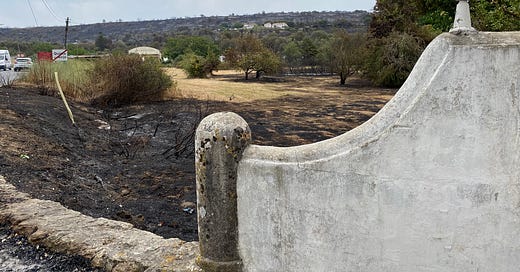



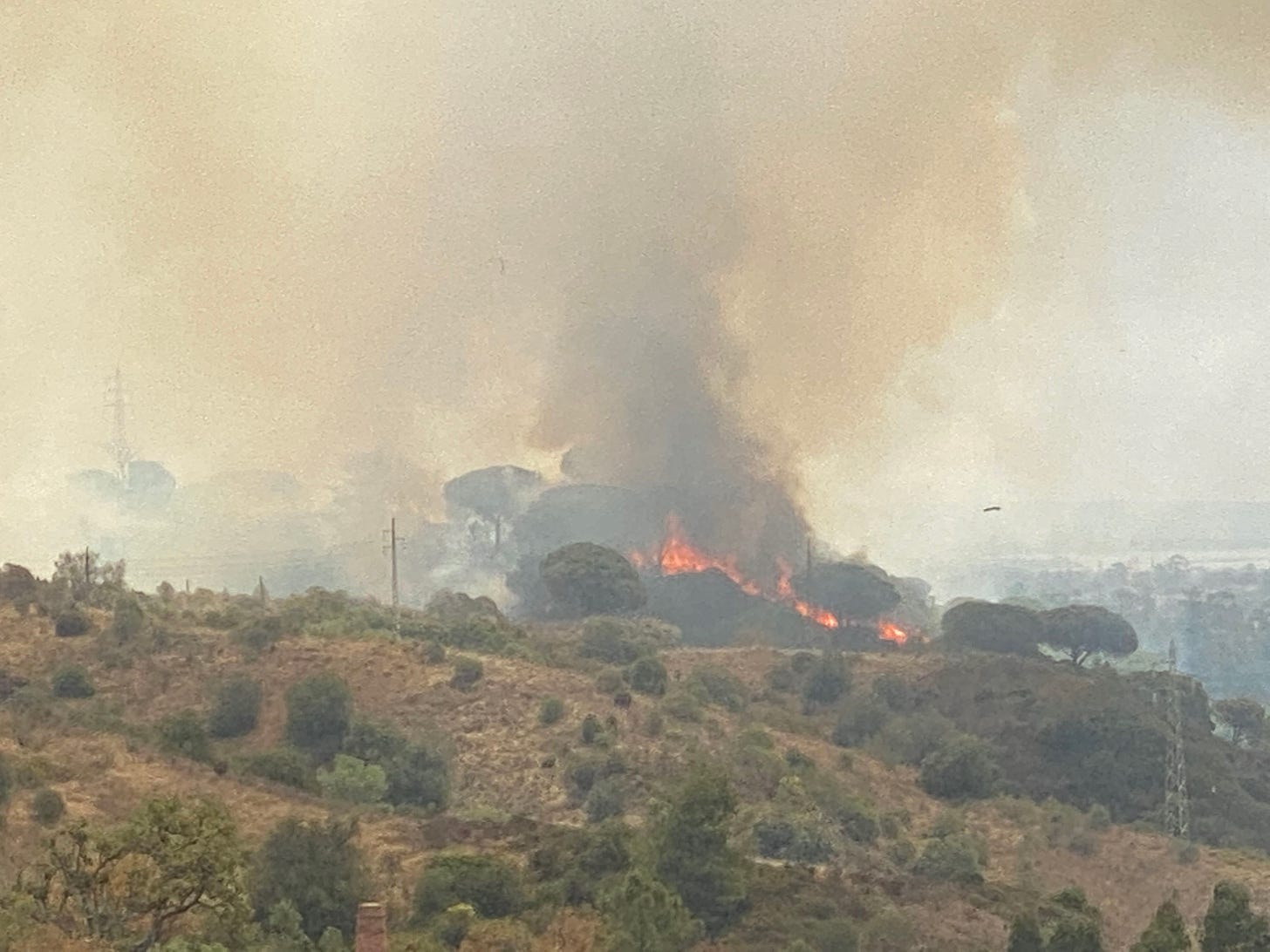
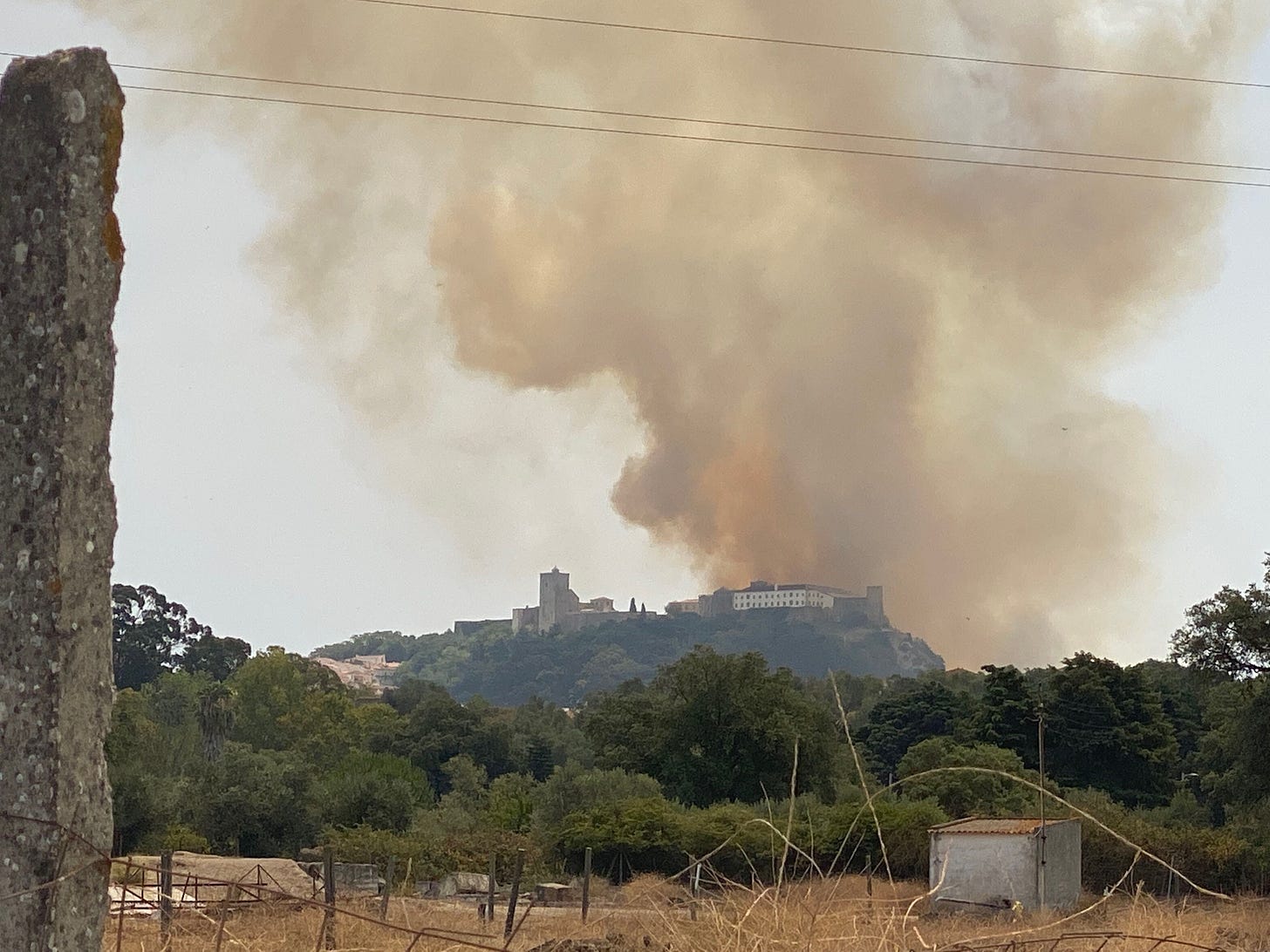
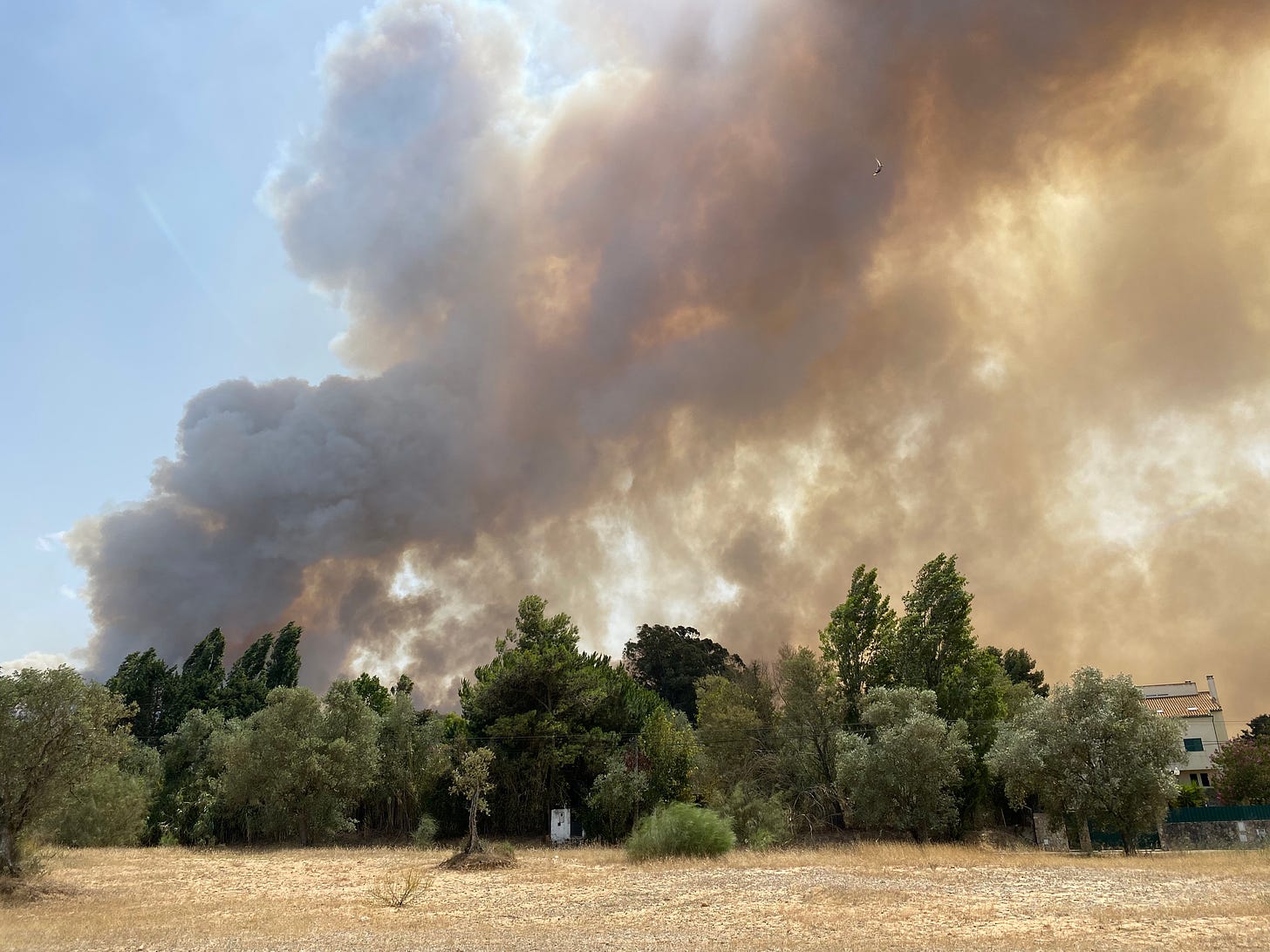
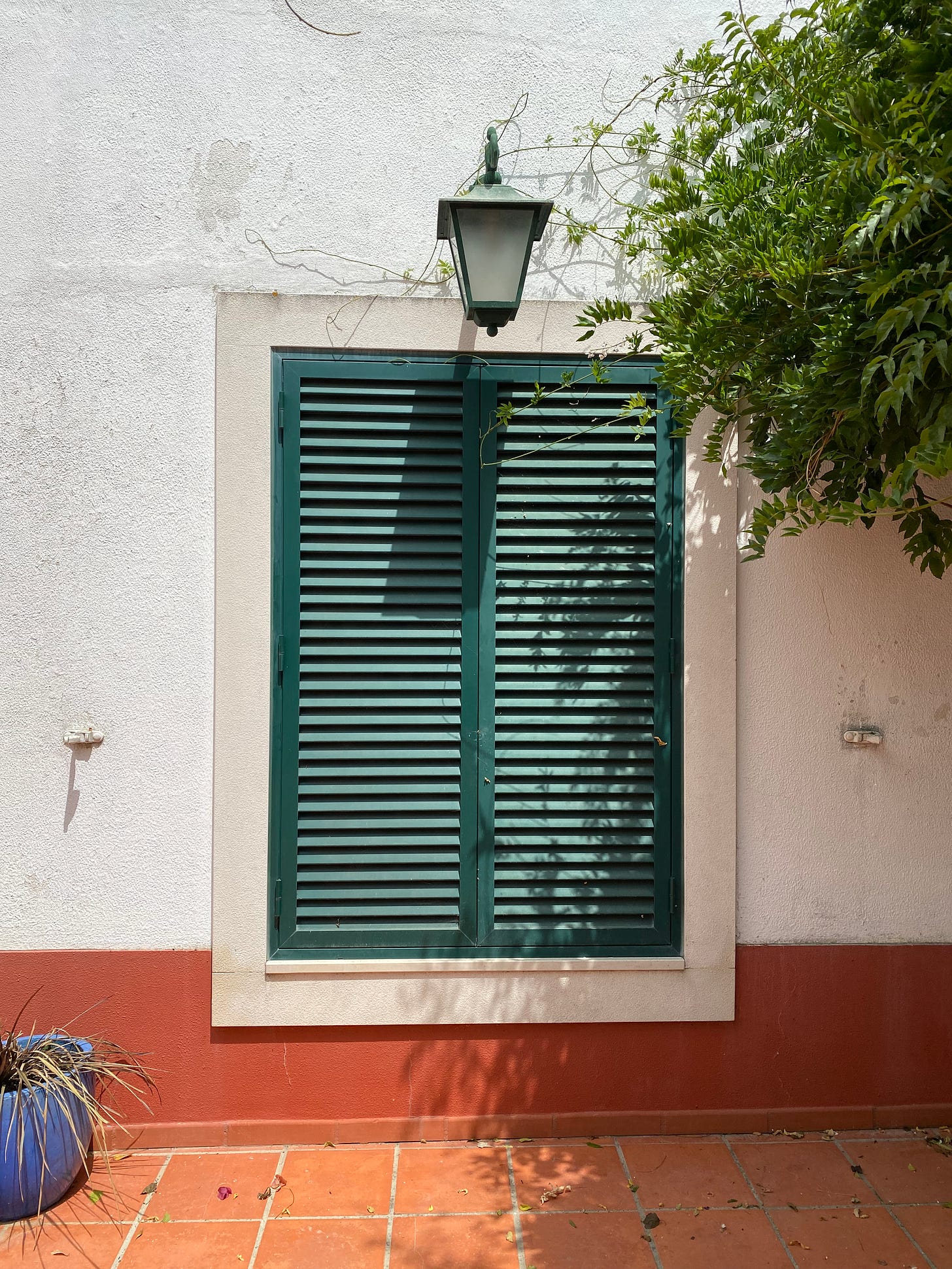
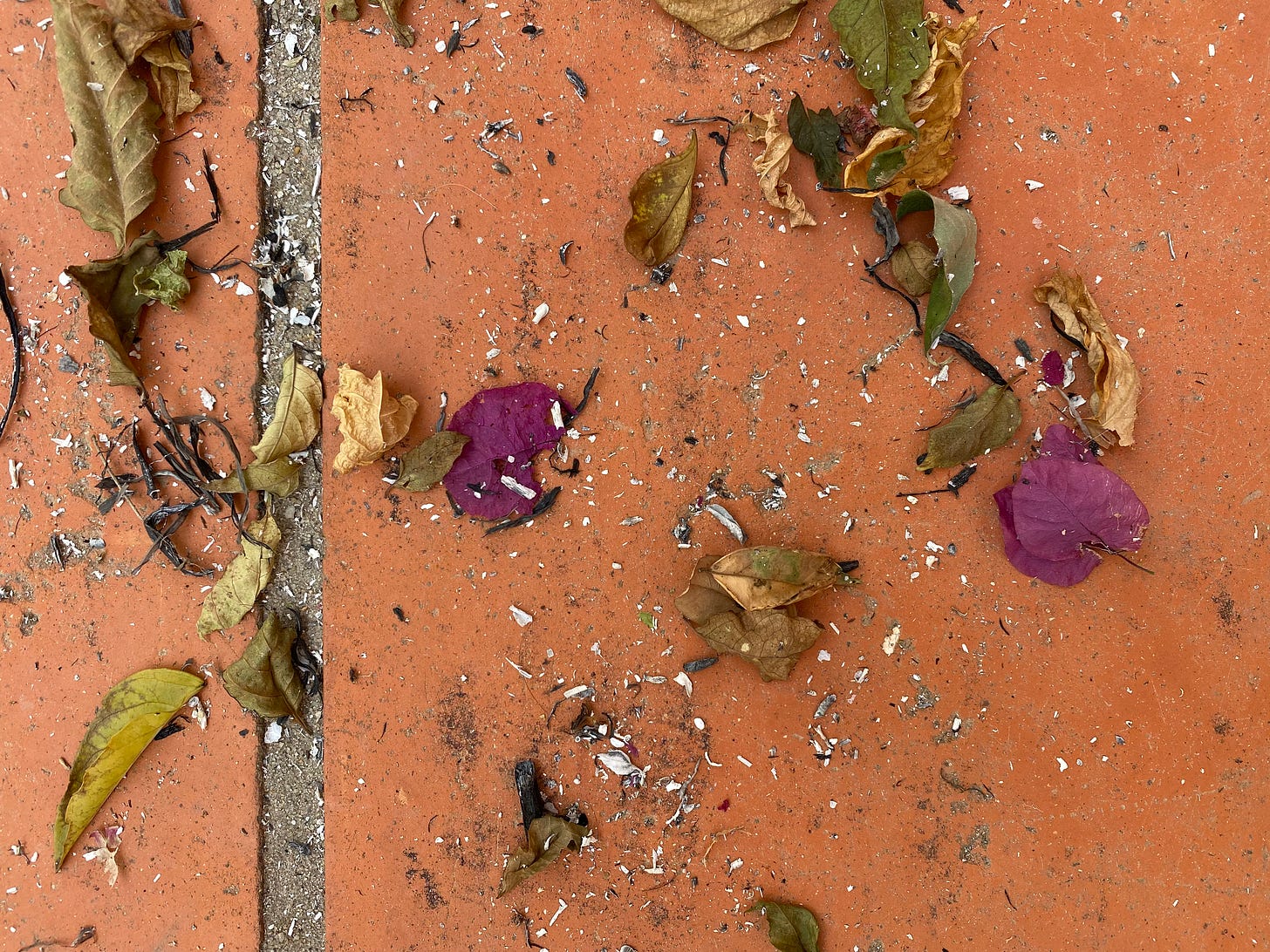
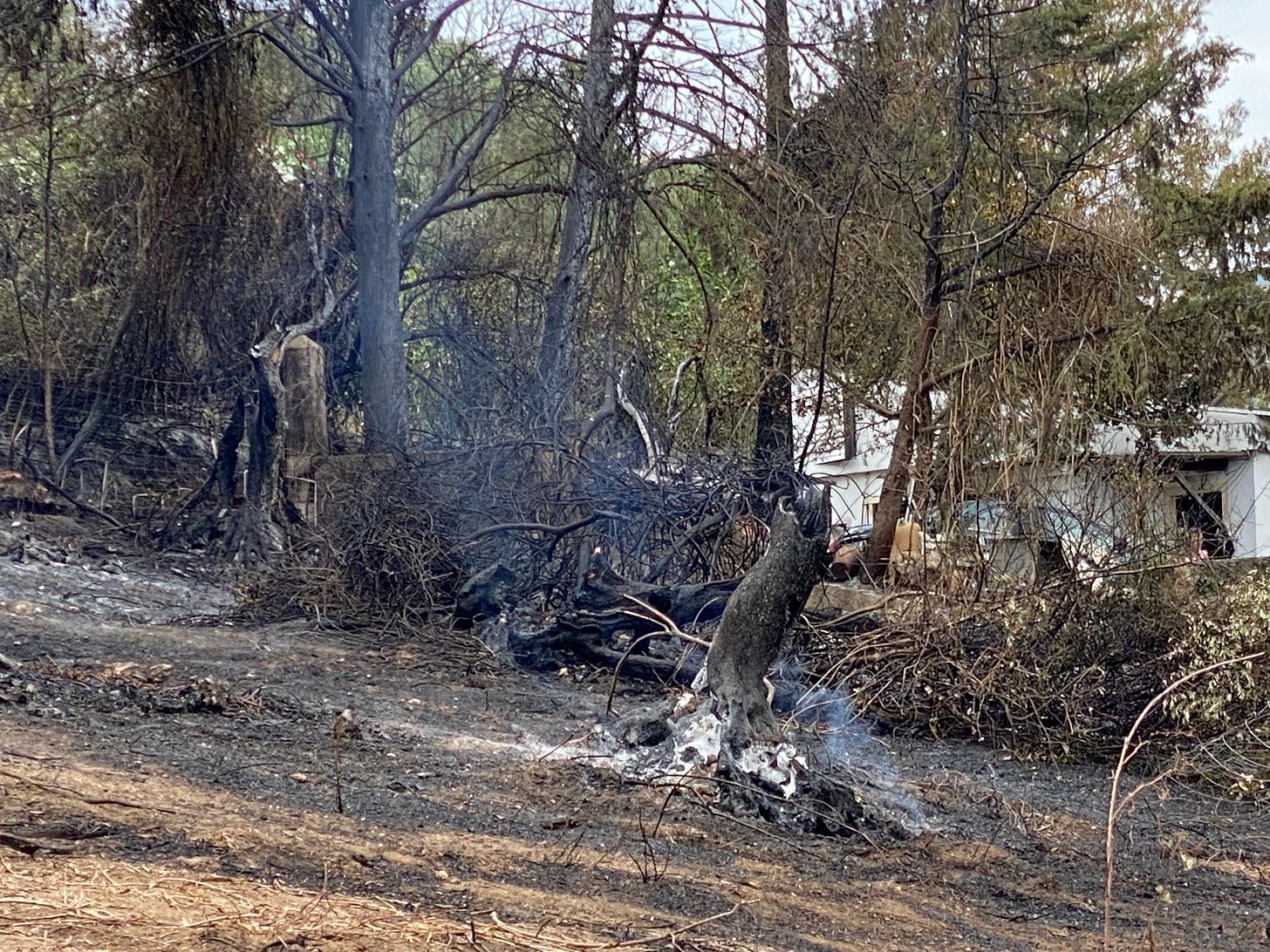
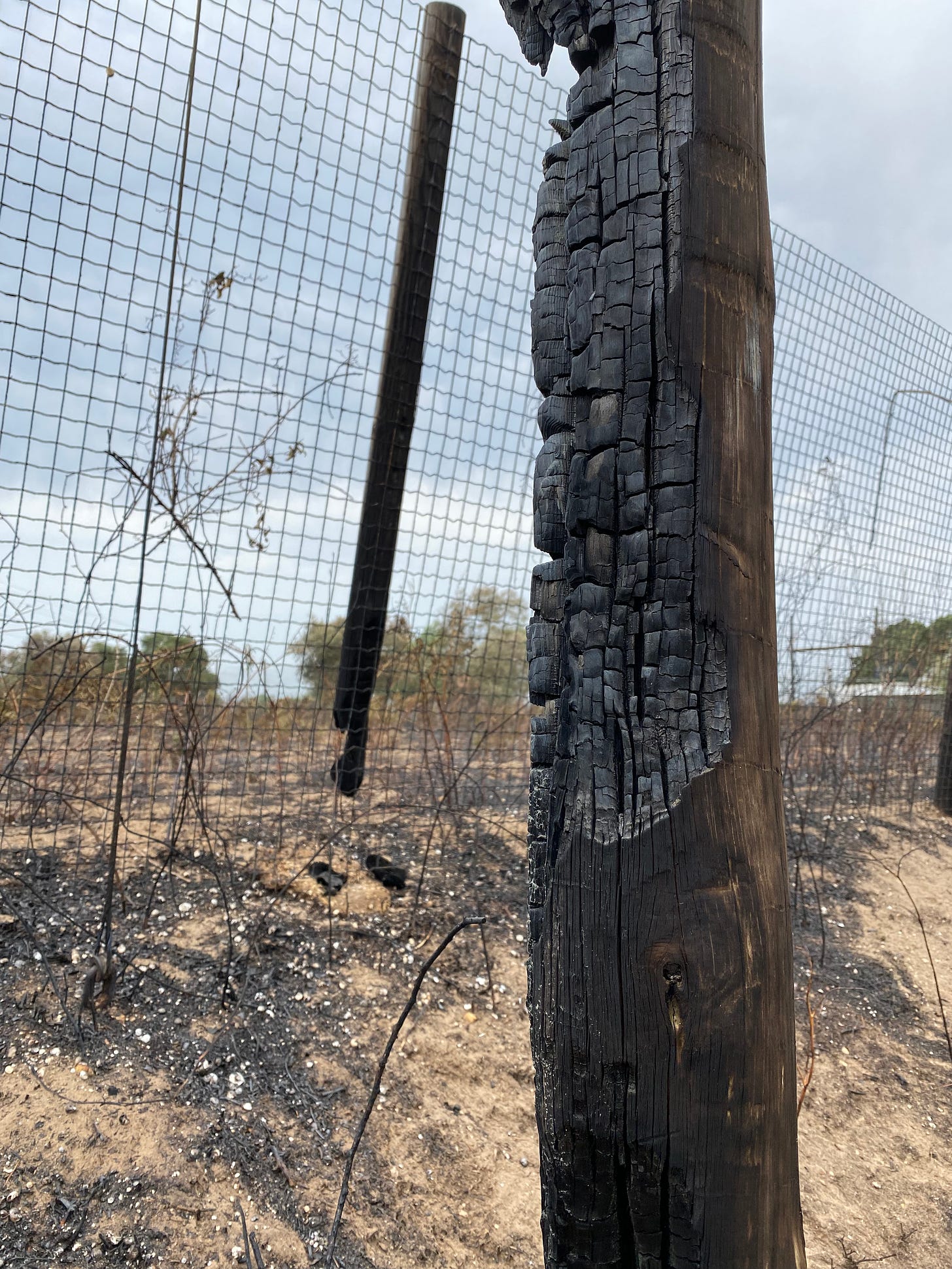
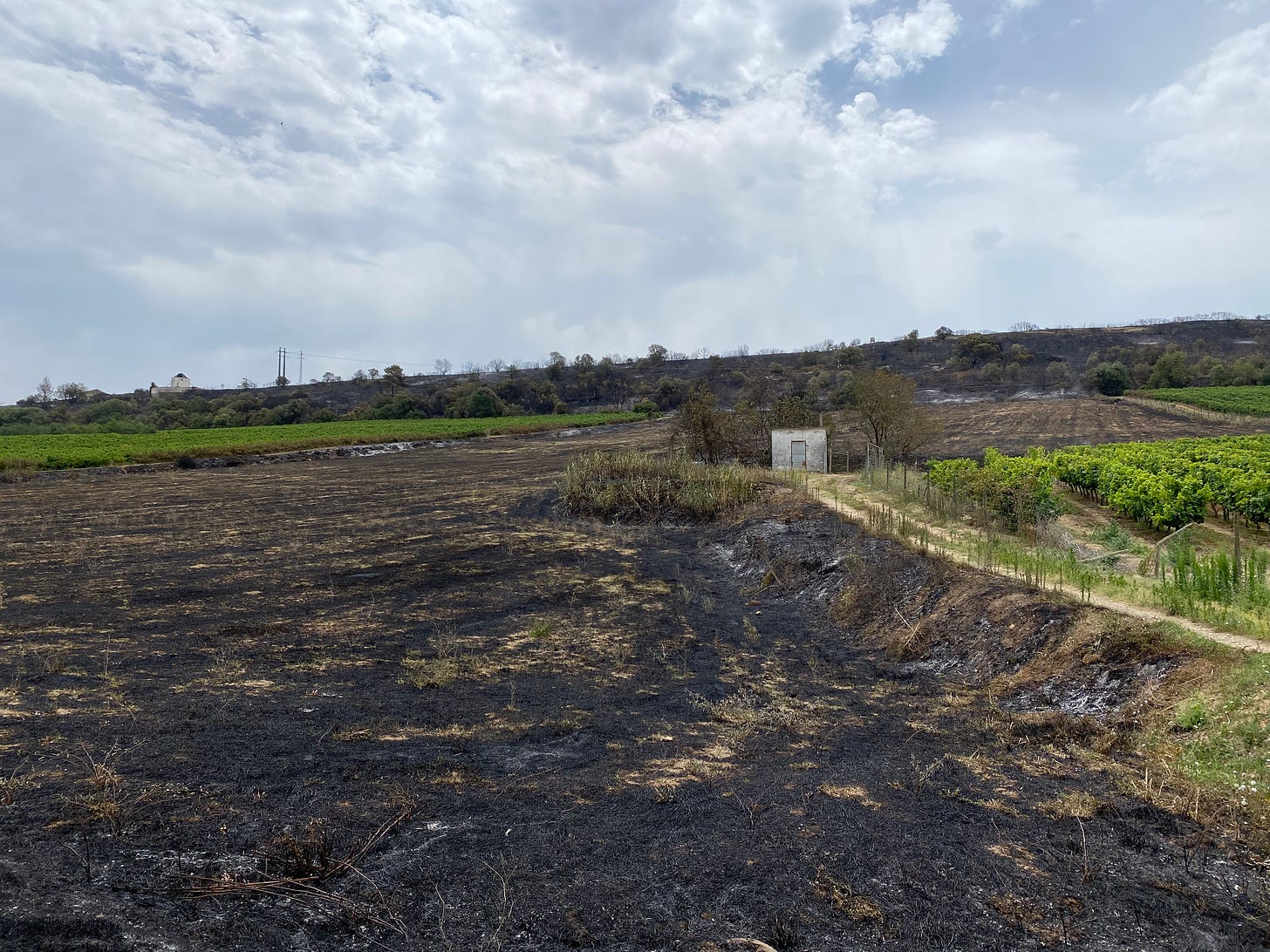
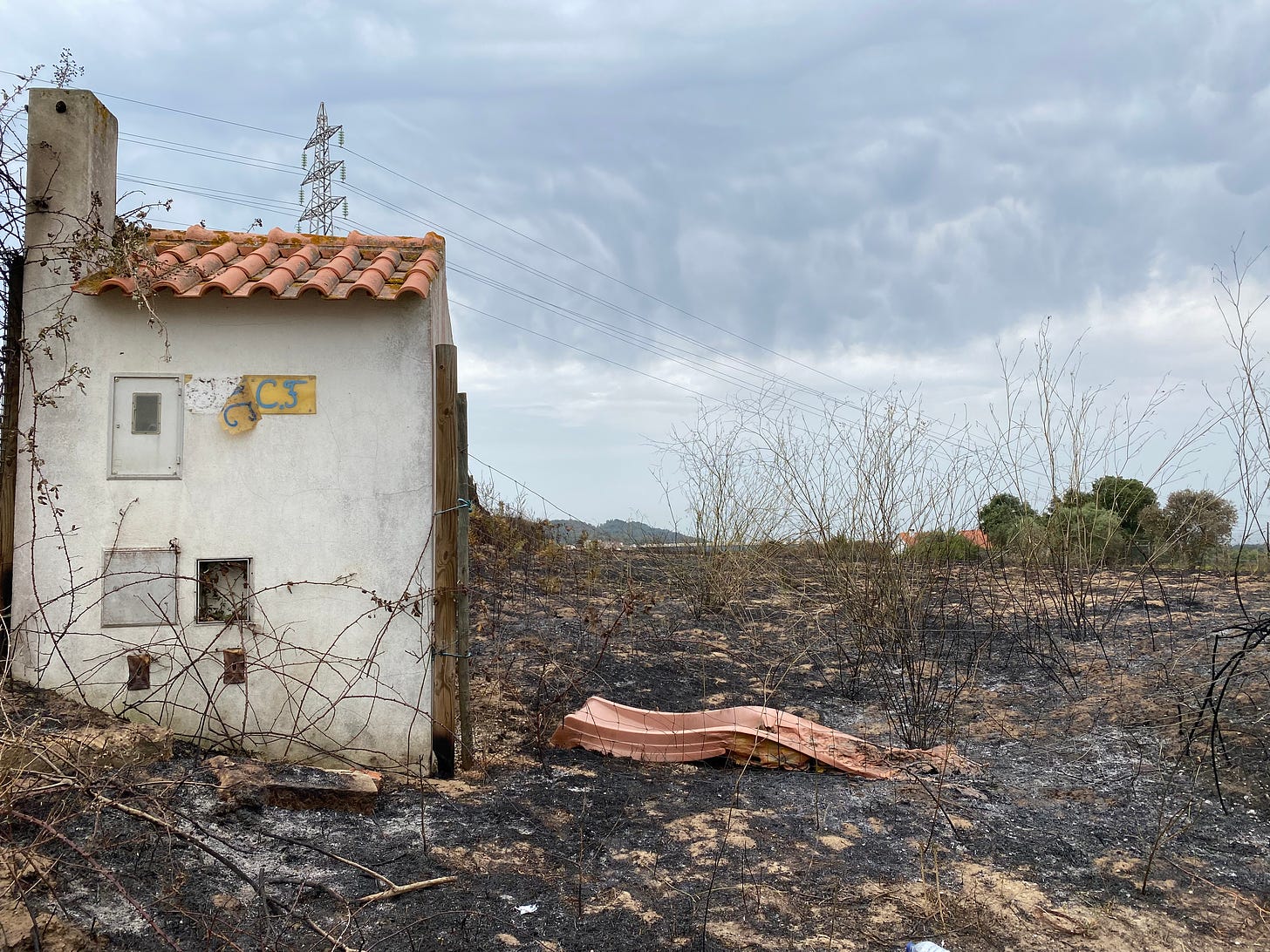
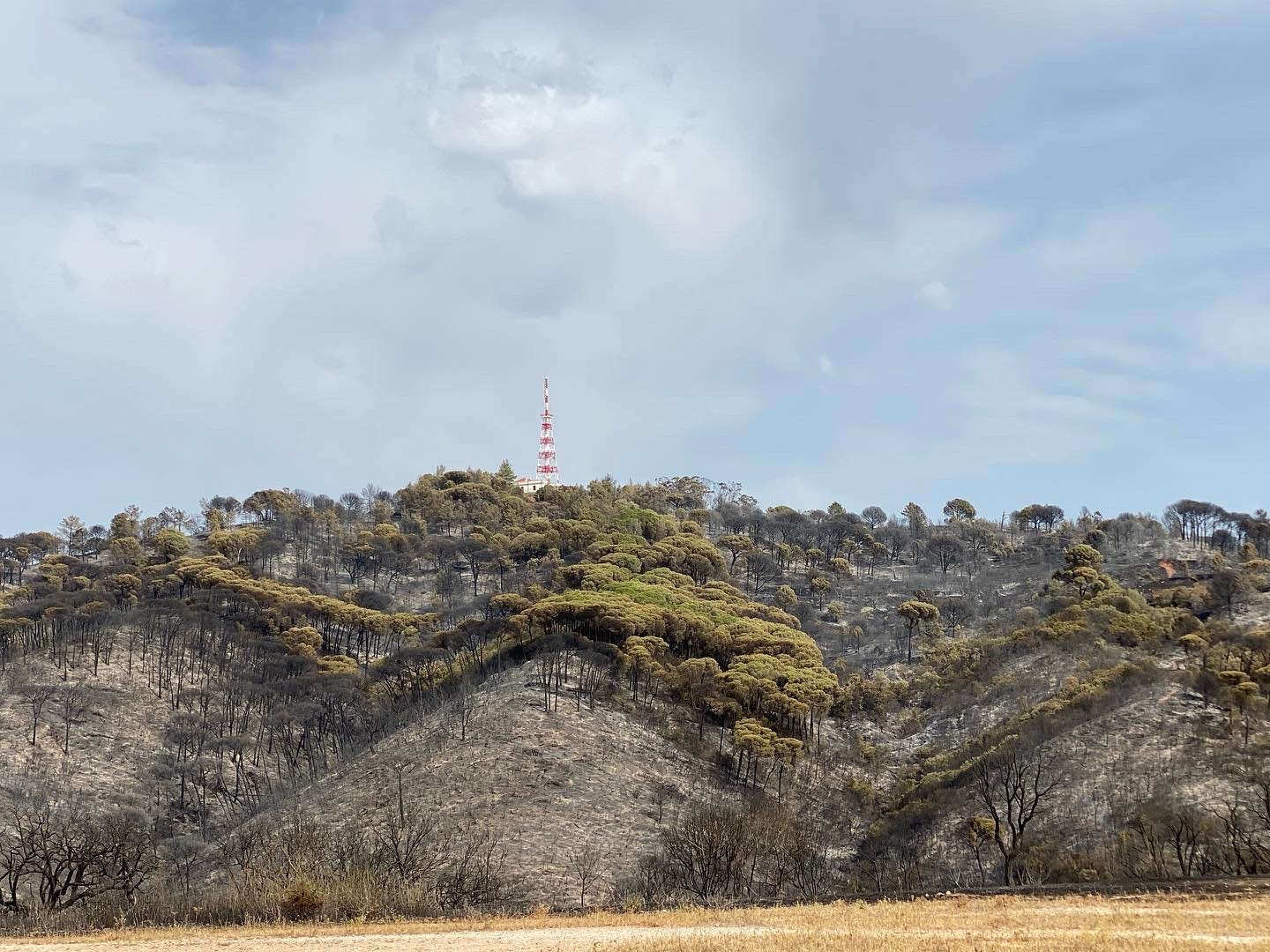
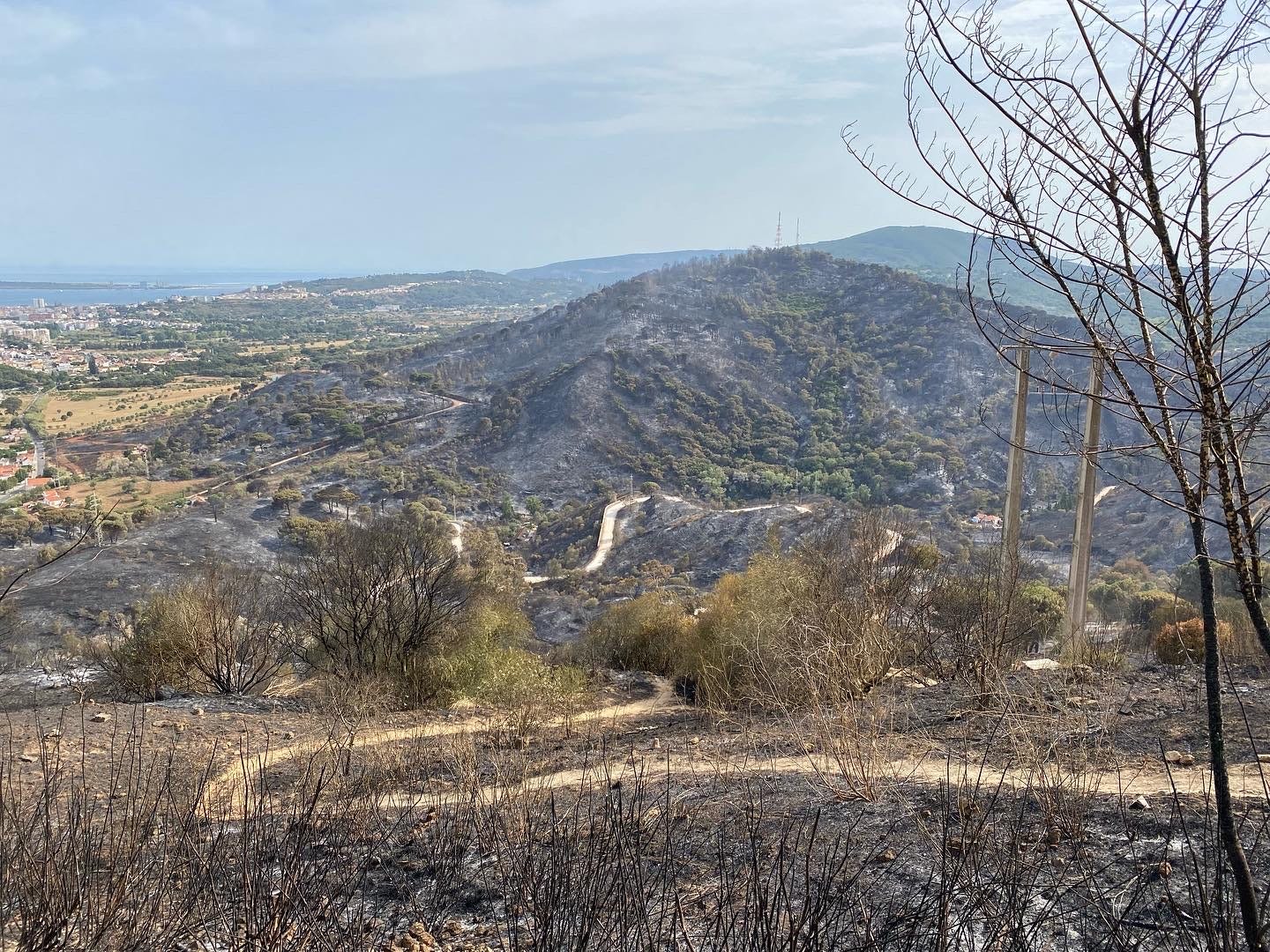
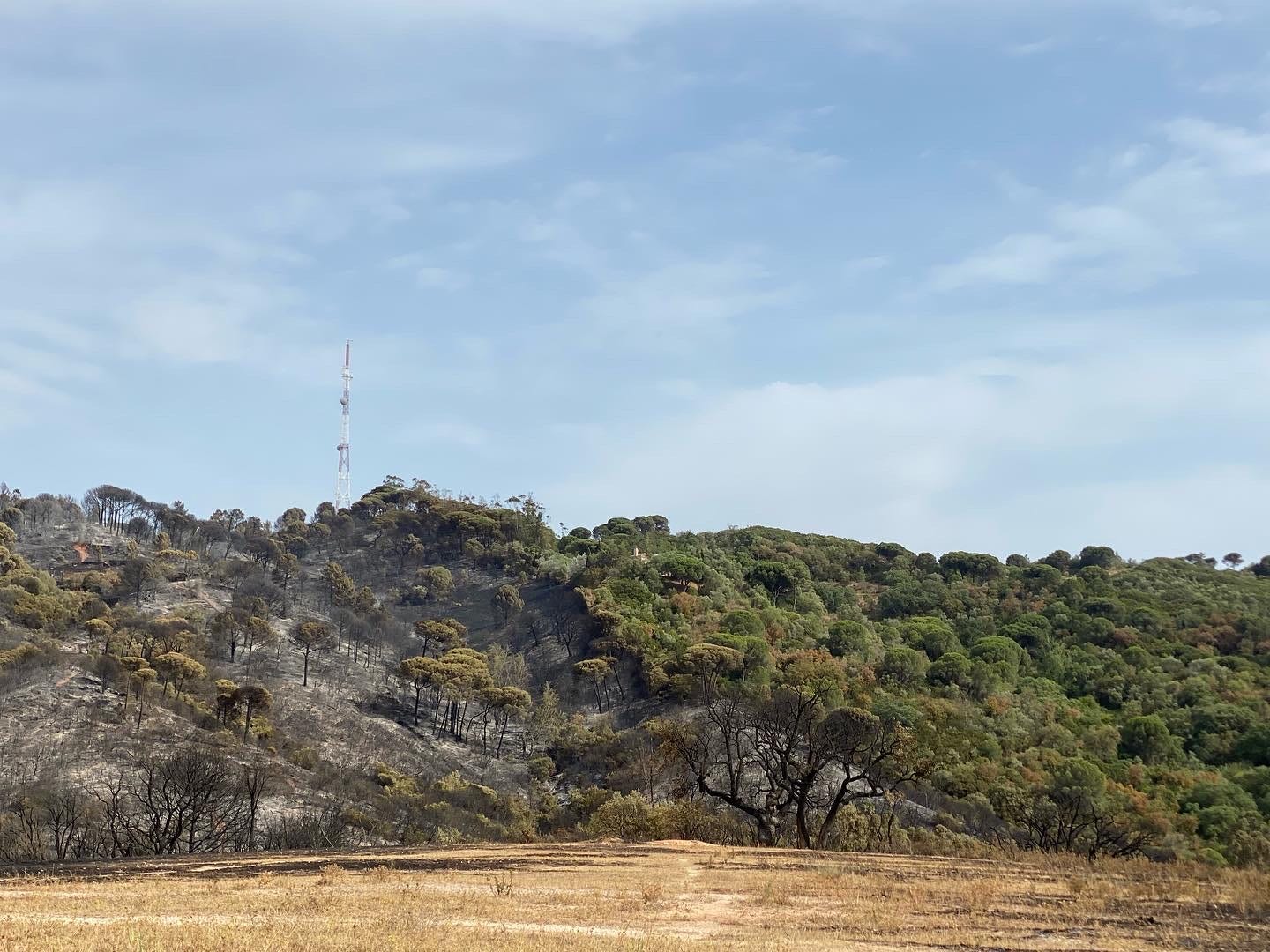
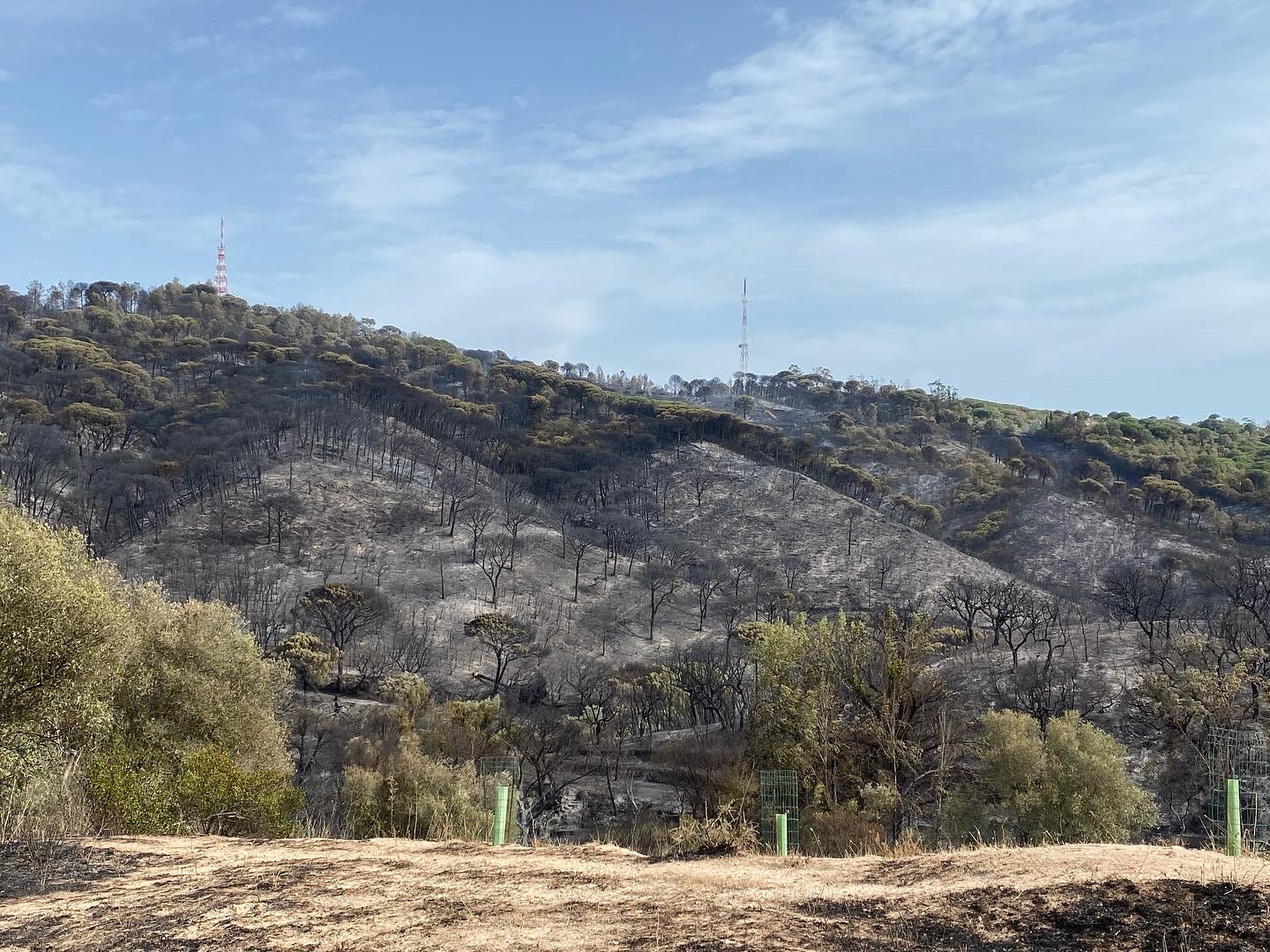
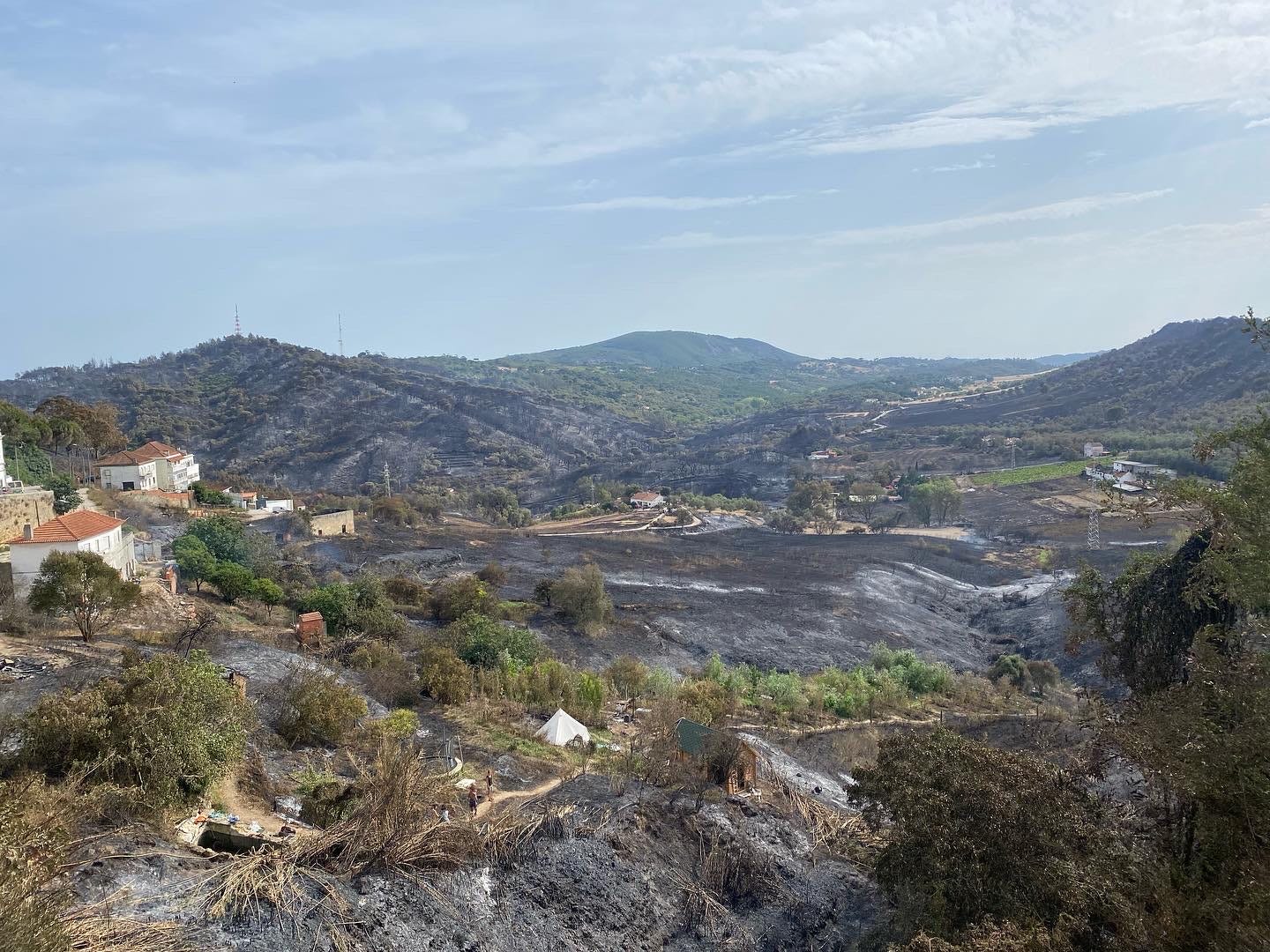
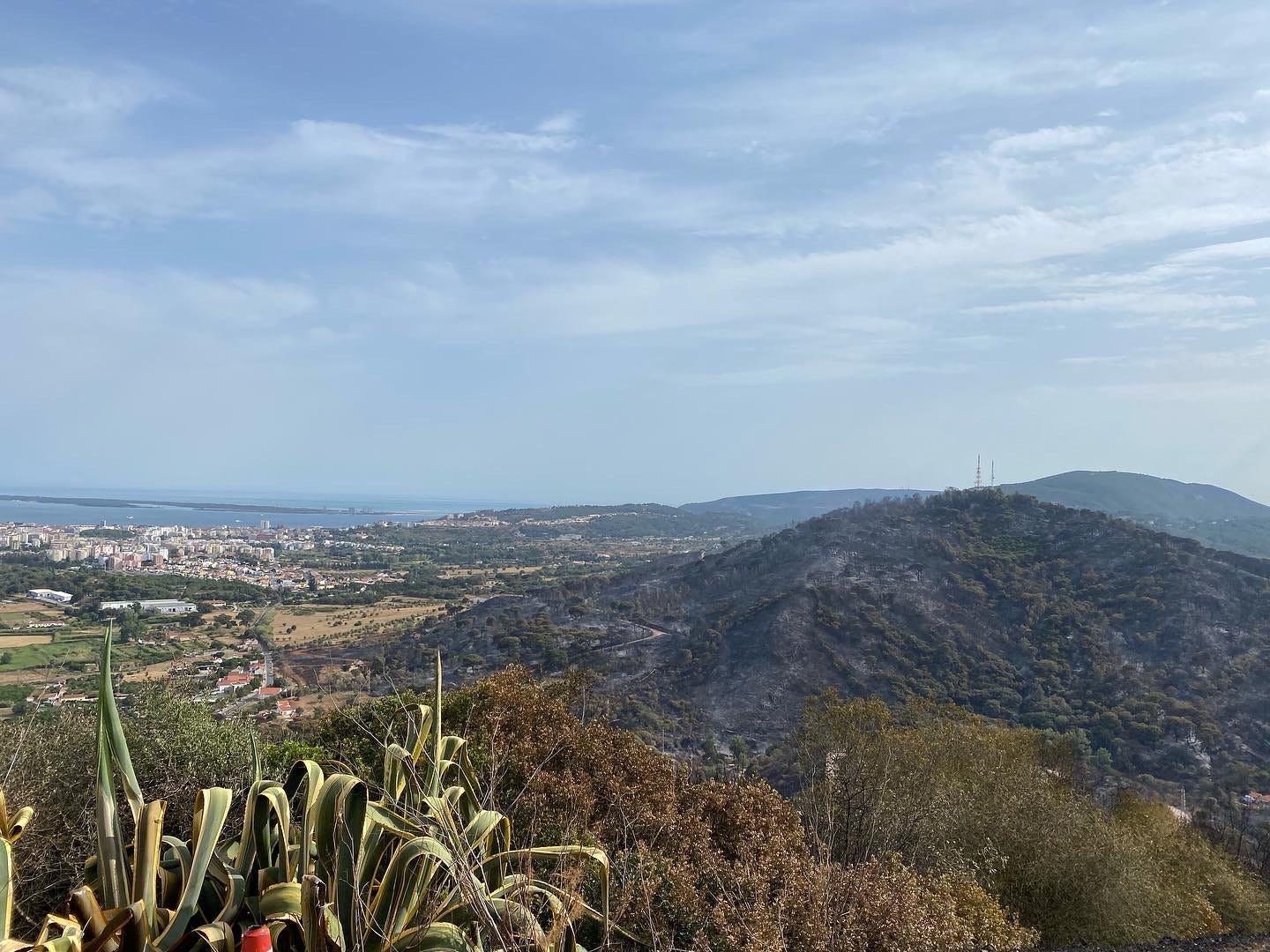
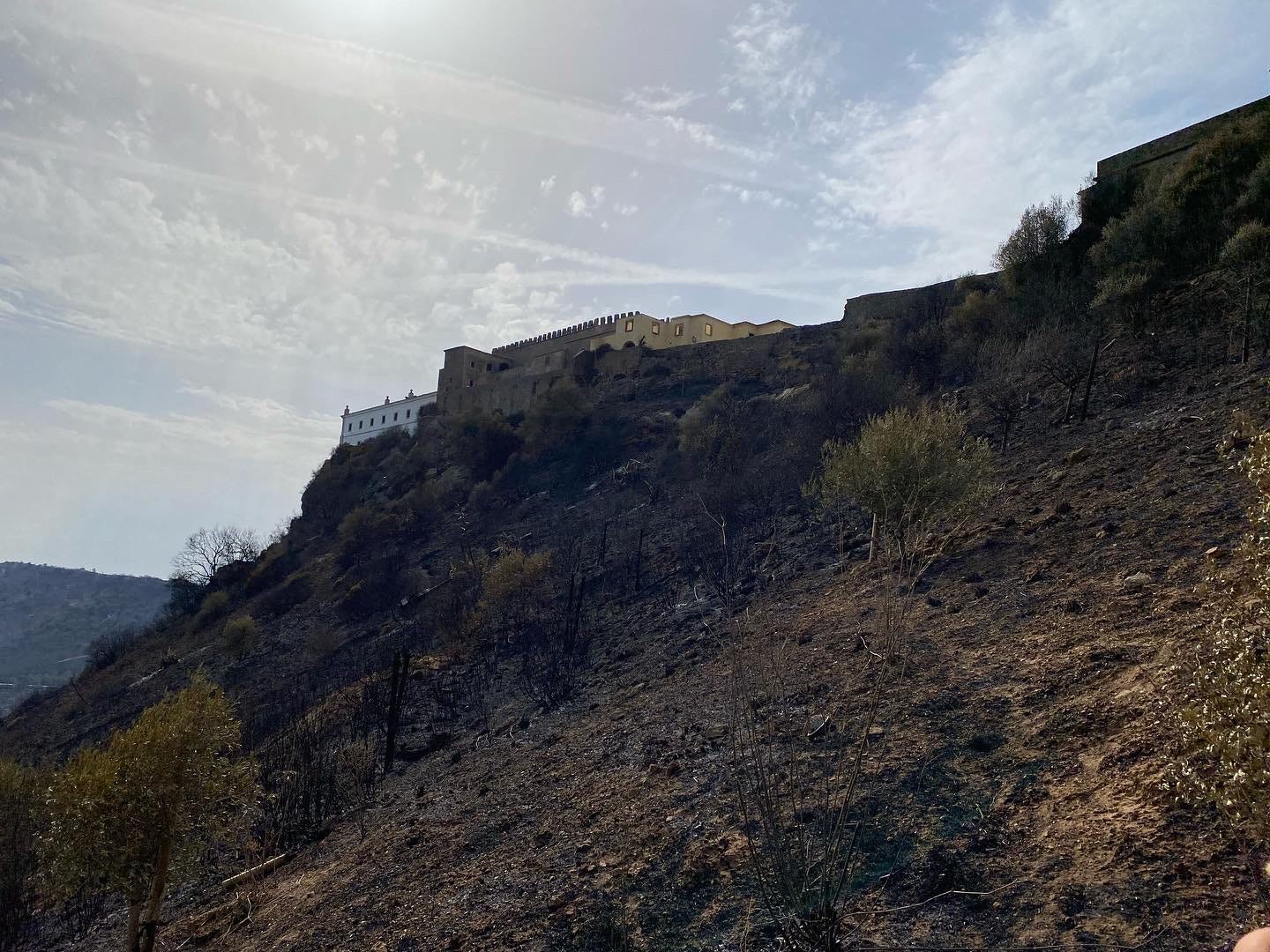
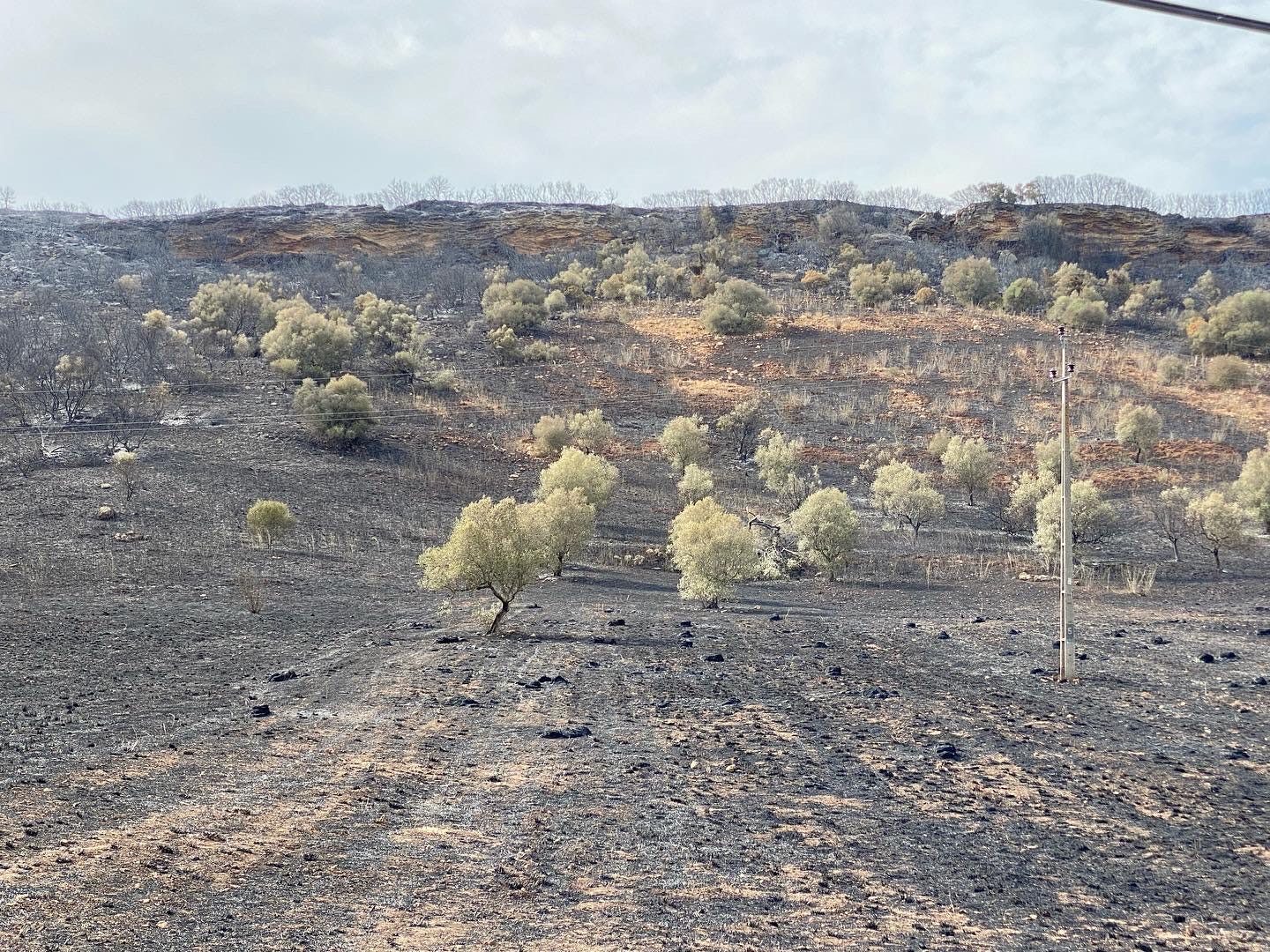
LaDonna,
First of all, I'm happy to hear that you and your family are safe and unharmed. Thanks for another excellent post. I was particularly struck by one sentence: "You never know, when you wake up, what hides within a day." So true!
I am so sorry that this is happening in Portugal. Here in western Canada (B.C.), we've had almost annual fires (except for this wet summer so far) and I have watched friends and family scramble to save buildings, animals, belongings and each other. It is terrifying and heart-wrenching and I know what you are going through. The kindness of neighbours, friends and strangers get us through - as always - and I wish you all the needed rest and resilience as you recover from this.